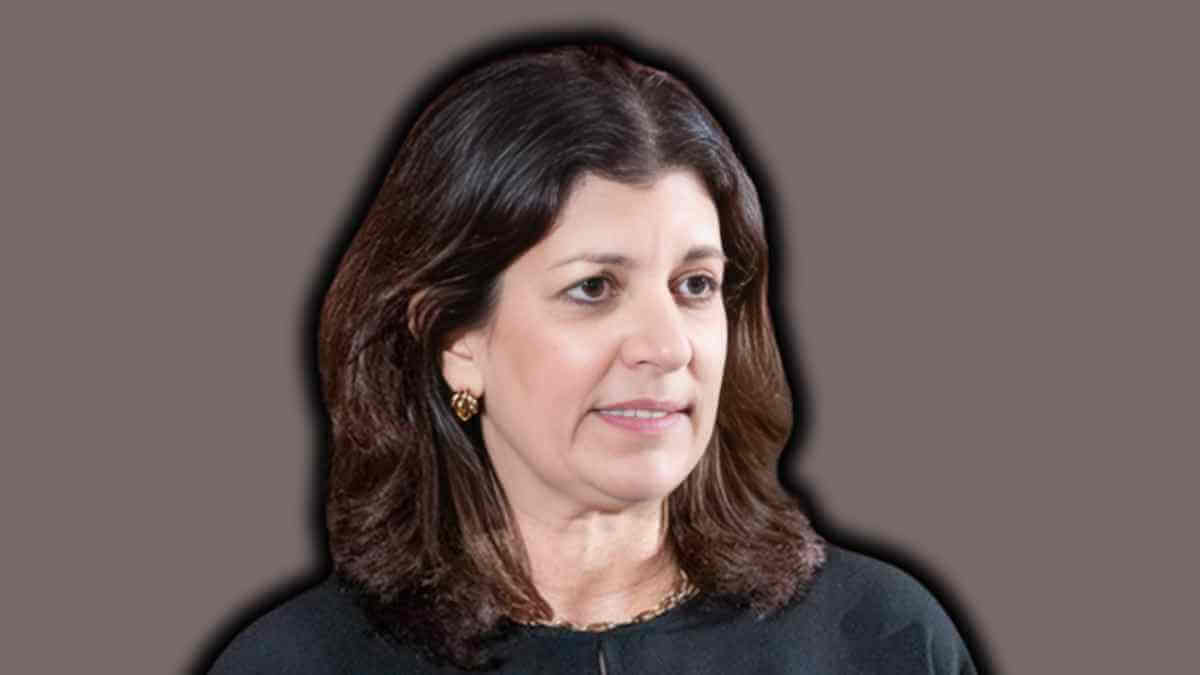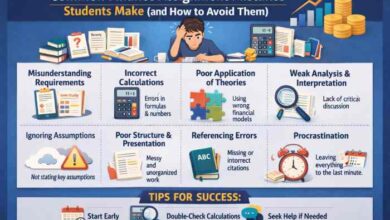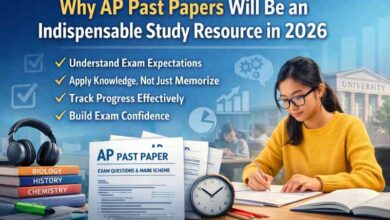
Leslie Vinjamuri stands as a formidable figure in the fields of international relations, diplomacy and global governance. Her career spans academia, think tanks and leadership roles in major policy institutions. Her voice resonates in debates on human rights, U.S. foreign policy, global order, and the challenges of twenty-first-century geopolitics. For those engaged in global policy, Leslie Vinjamuri is more than a commentator — she is a strategic thinker shaping the direction of international affairs
Table of Contents
ToggleEarly Life and Education
Leslie Vinjamuri’s path into international affairs was shaped by a strong academic foundation across institutions in the United States and the United Kingdom. She earned her Bachelor of Arts degree from Wesleyan University. She then completed a Master of Science at the London School of Economics, one of the world’s leading social science institutions. Later, she earned a PhD from Columbia University, where she deepened her expertise in political science and international relations. Her transatlantic educational experience informs much of her comparative perspective, blending American, British and global approaches to governance, rights and diplomacy.
Professional Trajectory
Leslie Vinjamuri’s career has moved fluidly between think tanks, policy bodies and academia. Some of the key roles she has occupied include Professor of Practice in International Relations and Diplomacy at SOAS, University of London, where she has taught and mentored students while bridging scholarship and policy. She served as Director of the United States and the Americas Programme at Chatham House, the Royal Institute of International Affairs, where she spearheaded projects and analysis on U.S. foreign policy, hemispheric relations and transatlantic ties. She also held the position of Dean of the Queen Elizabeth II Academy at Chatham House, involving leadership of research agendas, fellowships and institutional strategy. In 2025 she assumed the role of President and Chief Executive Officer of the Chicago Council on Global Affairs, an influential American foreign policy organisation. At each step, she has brought together academic rigour, policy relevance and institutional leadership.
Central Themes of Leslie Vinjamuri’s Work
Vinjamuri’s writing, commentary and leadership revolve around several recurring themes. Below are five areas in which she has made sustained contributions.
Human Rights and Global Futures
A core interest of Vinjamuri is the future of human rights in a shifting global order. She contends that human rights cannot be separated from geopolitics, constraints of power or the shifting priorities of states. She argues for what might be called “realist human rights”, recognising the limits of moralistic universalism while pushing for robust institutions, accountability and political coalitions that can uphold rights in practice. She co-edited Human Rights Futures, a collection that grapples with how human rights regimes might evolve under pressures such as authoritarian resurgence, climate change, pandemics and populism. In her view, safeguarding rights in the coming decades requires reinvention and adaptation, not naive optimism.
U.S. Foreign Policy, Grand Strategy and Power
Another central strand in Vinjamuri’s oeuvre is U.S. foreign policy. She analyses how American ends, means and constraints shift over time: how domestic politics, global crises, alliances and economic change affect Washington’s external behaviour. She is particularly interested in how the United States projects its power, the sustainability of U.S. primacy and the rebalancing of global influence. In her commentary and institutional work, she often argues that Washington must be more realistic and strategic, less bound by slogans and more guided by geopolitical clarity. She also tracks U.S. politics and how that internal dynamic shapes external posture.
Alliances, Institutions and Order
Vinjamuri sees international institutions and alliances as vital yet challenged by great-power competition and crisis. Her work often interrogates the legitimacy and effectiveness of multilateral institutions, questions of burden sharing, reform and the interface between global organisations and state sovereignty. She frames alliances not simply as military arrangements or partnerships, but as political frameworks through which values, norms and strategy flow. She asks how states adapt when institutions falter and how new frameworks might emerge.
Geopolitics, Power Transitions and Regions
While anchored in theory and policy, she retains a keen interest in concrete regional dynamics. She writes on the Americas, U.S.–Latin American relations, transatlantic ties and the influence of rising powers globally. She explores how states such as China and India challenge existing norms and how established powers respond. Her approach is not deterministic; she is sensitive to agency, contingency and norm entrepreneurship. She analyses how mid-powers and coalitions can shape outcomes even when they cannot dominate.
Institutional Leadership and Public Engagement
Unlike many scholars who remain within universities, Vinjamuri is a public intellectual and institutional leader. In her leadership roles, she is involved in structuring programmes, commissioning research, convening debates, fundraising and guiding institutional identity. Her public voice through commentary, media engagements and events amplifies her scholarship and connects it to real-world decisions. She models how academics can be more than critics — they can be builders and conveners.
Notable Publications and Contributions
While it is beyond reach to list every essay, article or speech, several significant works and contributions stand out. Human Rights Futures, the edited volume mentioned above, addresses how human rights frameworks might evolve amidst global disorder. She has written essays and reports on U.S. foreign policy trajectories, assessing American grand strategy, pivot points and the implications of political change at home. She oversaw programmatic reports from Chatham House’s U.S. and the Americas Programme, bringing together policy papers, convenings and briefings. She also contributes public essays in major outlets, delivering accessible insight on pressing geopolitical issues. Through these, she has shaped debates in academia, policy circles and the media alike.
Style, Approach and Intellectual Strengths
What sets Leslie Vinjamuri apart beyond her credentials is her style and approach. She demonstrates interdisciplinary fluency, moving comfortably across political science, history, law and strategic studies and bridging them in analysis. She balances idealism and realism, neither dismissing moral principles nor ignoring power constraints. Her institutional sensibility shows she understands not only ideas but how organisations are built, sustained and reformed. Her public and policy orientation means she crafts arguments suitable for both scholarly audiences and policymakers. Her writing is direct, clear and avoids unnecessary jargon.
Critiques, Challenges and Contested Points
No intellectual is without critiques, and Vinjamuri’s work invites debate. Some points of contest include the tension between realism and normativity: critics might say her realism softens the moral imperative of human rights and question whether it is possible to maintain normative urgency while acknowledging constraints. Others raise concerns of institutional overreach, suggesting that her advocacy for rewiring institutions can be seen as overly ambitious in the face of state resistance. Given her strong engagement with U.S. foreign policy, some may argue she gives too much weight to Washington’s role and not enough to non-Western agency. Translating ideas into institutional reform is difficult and some may question whether her prescriptions are realistically implementable given current geopolitics. These critiques do not undermine her contributions; rather they sharpen them, generating richer debate.
Influence in Practice
Vinjamuri’s impact is visible in multiple domains. In think tanks and policy circles, through her leadership roles, she shapes research agendas, commissions studies, convenes international dialogues and steers institutional priorities. In education and mentorship, as professor, she influences emerging scholars, instilling in them the rigour and policy relevance she embodies. In public discourse, her commentary shapes how media, civil society and decision makers interpret developments in global order. In institutional design, her ideas about reforming institutions and alliances may influence future organisations or policy frameworks. When new global challenges emerge — be they pandemics, climate stress, authoritarianism or great power rivalry — voices like hers are likely to be central in interpreting and guiding responses.
Why Leslie Vinjamuri Matters Now
We are living in a moment of transition. The post-Cold War unipolar era is giving way to multipolar competition. The rules of cooperation are under strain. Human rights norms feel under siege and states push back against institutions. In this environment, voices that combine moral seriousness with strategic realism are in high demand. Leslie Vinjamuri is one such voice. Her emphasis on adaptability, institutional renewal and linking principles to power makes her a key thinker in navigating this age of turbulence. Her leadership at a major American foreign policy council also signals her shift from analyst to shaper of global debates.
Conclusion
Leslie Vinjamuri is not only an accomplished academic and analyst, but also an institutional leader and public intellectual whose work bridges theory and practice. Her contributions to debates on human rights, U.S. foreign policy, institutional reform and global order are substantial and original. In an era that demands careful thinking about principles, power and institutional capacity, her voice is essential. Whether you are a student, a policy practitioner or a curious reader of global affairs, following Vinjamuri’s work offers both intellectual provocation and guidance for the challenges ahead.



